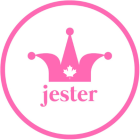Predicting the future is an often unspoken requirement for marketers.
And honestly, most of us just get better at feigning wisdom after the fact, or making predictions with some wiggle room for changing tides.
More often, we’re as blindsided by the spinning world as everyone else, even with all our fancy data metrics and market studies.
Just look at the changes rocking the social media world right now. Predicting Elon Musk’s latest changes to Twitter… oh, we mean X?… is a lost cause, and the mass migration to alternative apps like Threads is well underway.
Some worry that short-term hype over a viable alternative to Twitter/X will simmer and fall flat, going the way of Google Plus.
We’re not so sure.
The better question to worry over is which platform is better suited to your brand. The answer will be a far better predictor of your success in the world of social media marketing than long-term predictions beyond your brand’s control.
For those who find Twitter/X more suitable, the app’s volatility in recent months is a fair concern — who wants to work months or years to establish a presence on a platform only to see engagement plummet? Or worse, watch their audience migrate or the whole platform go up in smoke?
On the other hand, though it can be wise to start strong on a single platform and branch out, this eggs-in-one-basket approach usually isn’t the best long-term social media strategy.
So, even for those willing to buckle up through this bumpy season in the bird app’s quest for global attention (the quest of all social media, when you think about it), you may want to at least consider branching out.
Enter Threads.
Meta’s Threads app has had a bumpy start, even though millions flocked to the alternative app in its opening days.
When the app arrived, it was only available via smartphone, making desktop campaign management virtually impossible and a quick nightmare for marketing teams trying to launch on the platform. Meta has since corrected this oversight.
Some other aspects of the new app we expect to change:
- No ads (a great feature, for now, but we’d be shocked if Meta doesn’t change this soon, considering the heavy integration of ads in Facebook and Instagram — and the account link between Instagram and Threads)
- No DMs (a huge relief for many, but DMs can be an incredible tool when used well, and we suspect integrated messaging between FB, IG, and Threads is coming soon)
- No hashtags (giving the app a more natural feel, but at the expense of versatile search functions and easy topic or campaign tracking)
We suspect these are bugs, not features, wrinkles left over from rushing production that will be ironed out in due course.
In short, there are hurdles to overcome and risks to both platforms.
For many, culture is the deciding factor. Abandoning Twitter/X felt like a breath of fresh air for those seeking an escape from toxic voices on the platform and the overall unpredictability of the app in recent months.
But there’s another cultural difference between the bird app and Threads: Instagram. Most early Threads adopters were already on Instagram, and anyone hoping to join Threads has to have an Instagram account first. They also have to be willing to delete their Instagram account if they want to remove their Threads account, adding a small but important barrier for those looking to make a scene.
This also makes Threads an extension of Instagram culture more than a replacement for “X” culture.
So, rather than cementing other cultural divisions, we may just be seeing a slow divergence between those more visually and those more verbally inclined.
That’s why we’ll shy away from any long-term prediction and simply end with this advice: play to your strengths.
There’s incredible value in learning new skills and taking the time to reach a new audience, but social media is all about attention and communication. Choose where to start and thrive based on what’s best for your brand, where you’ll hold the most attention and communicate your message with the most impact.
All you can do beyond that is stay consistent but adaptable, and let change come as it may.
(Though hopefully good change, and hopefully a little less for the foreseeable future!)
